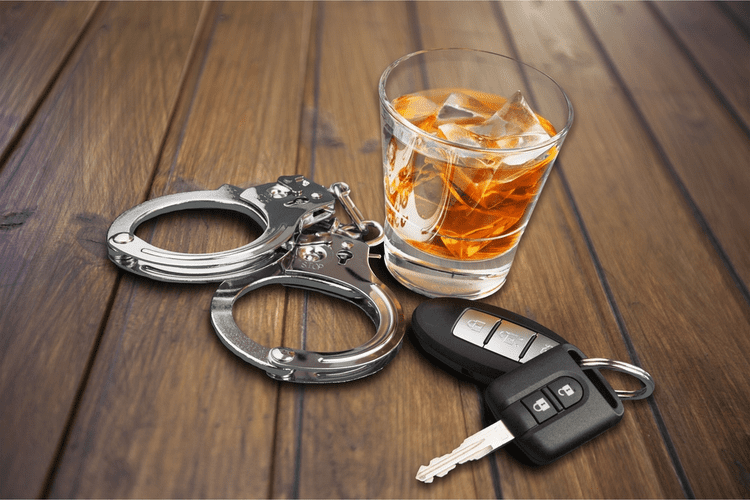In other words, alcohol use can bring about sleep disorders, and having a sleep disorder could also play a role in developing alcohol addiction. This can happen because many people self-medicate with alcohol to fall asleep faster, not realizing the harm it can do in the long run. Sleep onset occurs when there are increased homeostatic (sleep-promoting) and decreased circadian (wake-promoting) drives (Borbely, 1982). From a general neurophysiological perspective, the onset and maintenance of sleep involves depolarizations of the thalamocortical neural circuits (Saper et al., 2010). The ‘sleep-wake switching system’ resides within the lateral hypothalamus, the ventrolateral preoptic area, and the median preoptic area. In contrast to generalized sleep activity across the brain, “local” sleep involves activities in certain neurons or neuronal assemblies leading to regional sleep-like neuronal activity patterns.

How Does Alcohol Affect the Sleep Cycle?
Choose where we’ll send you resources to support your health and financial well-being. Select the option(s) below that best describes you to get communication that matches your interests. An uncomfortable sleep environment can make getting a good night’s rest challenging. The drug addiction content of this publication does not represent the views of the University of Pennsylvania, Department of Veterans Affairs, the United States Government, or any other institution.
- This might include investing in a comfortable mattress—and if you’re sensitive to light and sound, blackout curtains or earplugs.
- If you wake up, try a calming activity such as deep breathing or a brief meditation.
- Alcohol and sleep are closely linked issues, and lack of sleep will not help your alcohol addiction issues.
- Over time, this can lead to improved relationships both personally and professionally and an increased capacity to tackle the stresses of professional life.
- Stress and anxiety, common among those who use alcohol to relax, can further worsen sleep problems.
Circadian Rhythm Disruptions
Studies suggest avoiding nicotine and caffeine, as they are stimulants, at least four to six hours prior to going to sleep as they will make it more difficult to fall or stay asleep. Be mindful of when you eat, as if you go to bed with an empty stomach you may become hungry, which will disrupt your ability to fall or stay asleep as well. If you are hungry and it is close to your bedtime, eat a small, healthy snack. Also, use caution regarding how many liquids you drink prior to bedtime, as this is important in order to prevent having to wake-up to use the restroom during the middle of the night. Whether you listen to calming music, read a book, or take a warm bath, establishing a relaxing evening routine will help improve your sleep.
Does Warm Milk Help You Sleep?

It’s a pendulum that swings back with a vengeance, causing sleep woes. REM sleep – the dream-stage of sleep, where most restorative processes occur – is adversely affected by alcohol. After drinking, you might notice that you dream less, which is a typical indication of shortened REM sleep. Think of your body as a downtown city – buzzing with events and activity. Alcohol had been hosting one of the most attended shows for years and, suddenly, it’s gone.
They will also experience shorter periods of sleep, resulting in less restful sleep overall. However, in the second half of a night’s sleep, alcohol diminishes the amount of REM sleep. Alcohol’s negative effects on sleep quality worsen after several nights of drinking. Studies have shown that short-term alcohol use can shorten the time it takes to fall asleep.
You Asked: Why Do I Always Wake Up at 3 A.M.?
However, genetics appear to play a significant role in the development of alcoholism does alcohol cause insomnia (alcohol use disorder or alcohol addiction). In other words, if someone in your family suffers from alcoholism, it places you at higher risk of also developing alcoholism. And, if one or both of your parents are alcoholics or struggled with alcoholism at one time, you have a four-fold risk of also becoming addicted to alcohol.
- The negative impact on your circadian rhythm is another major explanation for why many people face sleep issues when they decide to quit alcohol.
- So, even though a little alcohol before bed may reduce or eliminate insomnia or “sleeplessness,” it can swiftly become progressive.
- The best thing you can do to promote high quality sleep is to maintain your natural sleep cycle.
- In patients with delirium tremens (DTs), a higher percentage of Stage 1 sleep with REM (stage 1 period with low voltage EEG with REM) was demonstrated (Greenberg and Pearlman, 1967).
- Research has also shown that alcohol use can worsen the symptoms of sleep apnoea, a disorder in which your breathing stops and starts while you sleep.
As the body changes with the shortfall of Alcohol, rest examples can become disturbed, prompting challenges of falling and staying unconscious. Alcohol can disrupt your sleep and reduce your ability to have consistent REM sleep. When consumed before bedtime, alcohol can increase your risk of experiencing insomnia and its related symptoms. In addition to the homeostatic drive, the normal sleep-wake cycle is also linked to an underlying circadian rhythm. The suprachiasmatic nucleus within the hypothalamus in the brain is the master clock that synchronizes a host of internal rhythms with the sleep-wake cycle being one of them. Light is the primary stimulus involved in synchronizing an organism’s internal rhythm in the circadian clock with the external environment.
The REM sleep architecture normalized over time with continued recovery (Imatoh et al., 1986). This phenomenon may suggest a normalization of the acrophase of REM sleep with sobriety and may also account for increased REM % during early recovery. In a frequently cited study, decreased REM sleep latency and increased REM % was seen at 27 months into recovery (Drummond et al., 1998). These findings contrast with lack of REM sleep abnormalities reported in 2 other studies, as compared to healthy control subjects (Williams and Rundell, 1981, Schiavi et al., 1995). Disruption of Sleep ArchitectureAlcohol might make you feel sleepy and help you fall asleep initially, but it significantly disrupts the quality of sleep. It reduces the amount of time spent in REM (Rapid Eye Movement) sleep, which is crucial for feeling rested and for memory consolidation.
Alcohol and Sleep
Therapy and medication can play critical roles in managing persistent insomnia after alcohol detox. Cognitive-behavioral therapy for insomnia (CBT-I), for instance, focuses on changing sleep habits and scheduling factors, as well as misconceptions about sleep and insomnia that perpetuate sleep difficulties. On the medication front, various options ranging from over-the-counter sleep aids to prescription sleeping pills can help manage insomnia. It’s important to note, however, that these are usually a short-term solution and should be used under a healthcare provider’s guidance. Consuming balanced meals throughout the day, avoiding caffeine, sugar, and heavy meals close to bedtime can go a long way in improving sleep quality.

Lascia un commento!